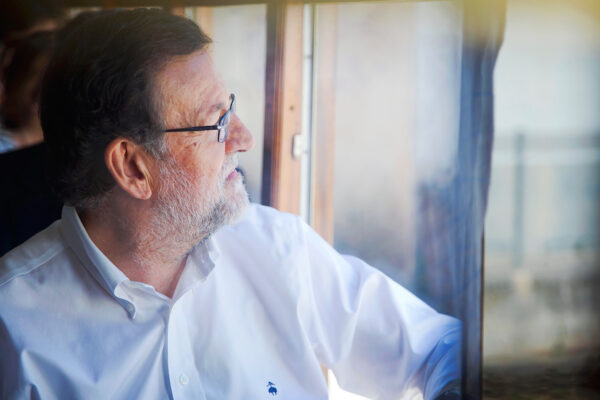
Napoleon famously regarded luck as the most important quality in his generals. We may need to apply the same thinking to politics, or at least Spanish politics.
Prime Minister Mariano Rajoy seems to be developing an entire political theory based around luck.
He would not put it quite like that. He would presumably argue that his continued success against all the odds is down to his political acumen and skills. But that is not how others see it.
The survivor
Looking back to the halcyon days of José María Aznar’s first center-right government, few if any would have picked out Rajoy as the future People’s Party leader. He was surrounded by an entire generation of apparently more brilliant politicians, including Interior Minister Francisco Álvarez-Cascos, Madrid president Alberto Ruiz-Gallardón, Valencia president Eduardo Zaplana and Deputy Prime Minister Rodrigo Rato. All have now disappeared from the political scene (Rato might even go to prison for corruption); Rajoy remains.
After last Sunday’s election, it looks as if he will enjoy another term. No one predicted this, certainly not the pollsters. The consensus was that the People’s Party would lose a few seats and that the anti-establishment Unidos Podemos would replace the Socialist as the second party in parliament.
Most commentators, including this one, predicted that in those circumstances Rajoy would be forced to resign as party leader to make way for a center-right coalition government.
Instead, the conservatives won an extra fourteen seats, Unidos Podemos disappointed and Rajoy remains the dominant political figure.
Wait, wait, wait
The technique behind Rajoy’s political success is instructive. Essentially, he says and does nothing and waits for political circumstances to move in his direction. Thus in 2012, during the sovereign debt crisis, despite the pleading of his own ministers, Rajoy refused to seek a bailout from the European Union. Even as Spain’s long-term interest rates approached unsustainable levels, Rajoy maintained a Buddha-like calm.
He was proved right. European Central Bank president Mario Draghi promised to do all it took and introduced outright monetary transactions. The markets were convinced and Spanish bond yields began to fall.
Rajoy’s approach was similar after the December elections. Realizing that there was little prospect of forming a majority right-wing government, he declined the invitation from King Felipe VI to try, leaving the burden to the Socialist leader, Pedro Sánchez. Many in his own party thought this stubbornness a mistake and spoke openly about removing him. Rajoy refused to budge, confident that the political situation would eventually shift in his favor.
Last Sunday’s election result appears to have proved him right.
Not turning now
There is no reason to think Rajoy will change his tactics now. He has already made clear his willingness to lead a coalition government with either the Ciudadanos or the Socialists. It doesn’t trouble him that both have ruled out any possibility of working with him.
Nor will he be worried by those within his own party who would remove him to facilitate the creation of a coalition government. If the king asks him to form a government, and the arithmetic is not yet right, Rajoy will again decline, putting the pressure on Sánchez as leader of the second largest party. Sánchez knows that he has no chance of forming a government this time. Rajoy is confident that all he has to do is wait and the political situation will move in his direction.
The Rajoy theory of political science will once more have been confirmed.
